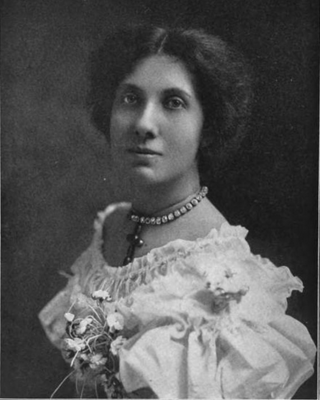
Carl Gustaf Verner von Heidenstam was a Swedish poet, novelist and laureate of the 1916 Nobel Prize in Literature. He was a member of the Swedish Academy from 1912. His poems and prose work are filled with a great joy of life, sometimes imbued with a love of Swedish history and scenery, particularly its physical aspects.

Willa Sibert Cather was an American writer known for her novels of life on the Great Plains, including O Pioneers!, The Song of the Lark, and My Ántonia. In 1923, she was awarded the Pulitzer Prize for One of Ours, a novel set during World War I.

Swedish Americans are Americans of Swedish descent. The history of Swedish Americans dates back to the early colonial times, with notable migration waves occurring in the 19th and early 20th centuries and approximately 1.2 million arriving between 1865–1915. These immigrants settled predominantly in the Midwest, particularly in states like Minnesota, Illinois, and Wisconsin, in similarity with other Nordic and Scandinavian Americans. Populations also grew in the Pacific Northwest in the states of Oregon and Washington at the turn of the twentieth century.

Louise Pound was an American folklorist, linguist, and college professor at the University of Nebraska. In 1955, Pound was the first woman elected president of the Modern Language Association, and in the same year, she was the first woman inducted into the Nebraska Sports Hall of Fame.
"Yon Yonson" is an infinitely recursive song, perhaps best known from the novel Slaughterhouse-Five by Kurt Vonnegut, although Vonnegut did not create it.

Elmer Goodfellow "El" Brendel was an American vaudeville comedian turned movie star, best remembered for his dialect routine as a Swedish immigrant. His biggest role was as "Single-0" in the sci-fi musical Just Imagine (1930), produced by Fox Film Corporation. His screen name was pronounced "El Bren-DEL".
"Paul's Case" is a short story by Willa Cather. It was first published in McClure's Magazine in 1905 under the title "Paul's Case: A Study in Temperament", which was later shortened. It also appeared in a collection of Cather's stories, The Troll Garden (1905). For many years "Paul's Case" was the only one of her stories that Cather allowed to be anthologized.
On the Divide is a short story by Willa Cather. It was first published in Overland Monthly in January 1896.

My Mortal Enemy is the eighth novel by American author Willa Cather. It was first published in 1926.

John R. Cumpson was an American stage and film actor. On Broadway, he appeared in Up York State in 1901. With regard to his screen career, Cumpson appeared in at least 124 films between 1905 and 1912. A 1910 newspaper item described him as "the famous Swedish dialect comedian."

William Frederick Kirk was an American baseball writer, columnist, humorist, poet and songwriter.

Annie Lewis was an American soubrette of light operas and musical comedies who died from tuberculosis in her twenties.

Montague Marsden Glass was a British-American Jewish lawyer and writer of short stories, plays and film scripts. His greatest success came with the creation of his fictional duo Abe Potash and Morris ("Mawrus") Perlmutter, who appeared in three books, a play, and several films.

Marie Burroughs was an American stage actress in the late 19th century. She played prominent roles in many plays, although she never became a first-tier star.

Henry Guy Carleton was an American humorist, playwright, and journalist. He was best known for his comedic plays A Gilded Fool (1892) and The Butterflies (1894).

Johnstone Bennett was an American actress and vaudeville performer.

Edna May Spooner, sometimes spelled as Edna Mae Spooner, was an American actress, playwright, and vaudeville performer.

Lillian Lewis was an American stage actor known for her performances in comedies and modern dramas in the United States, Canada, and Europe. Her business manager and husband, playwright Lawrence Marston, wrote many of the plays in which she starred. She also collaborated with him as a playwright on three works.

Ethel Dovey was an American singer and stage actress. Dovey was born into a large family and had two brothers and four sisters, one of which was Alice Dovey who she spent most of her childhood with training to be a singer. Her talent for dramatics was spotted at an early age and her maternal grandfather insisted that she and her sister be trained under the best teachers. For their talent to be realized, the sisters lived in London for part of their childhood, occasionally returning to America to visit family.

Knute Erickson was a Swedish-American vaudeville comedian and character actor.




















